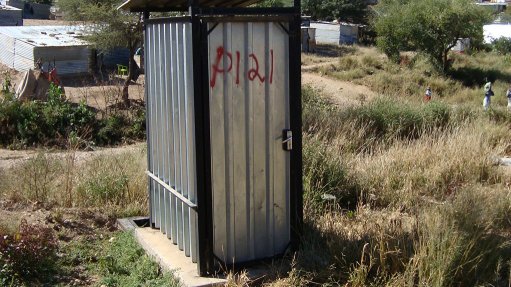
The Gauteng provincial government (GPG) says it has “completely eliminated” the bucket sanitation system in Gauteng after removing the last of the systems from the Ratanda Township, near Heidelberg.
Gauteng Department of Human Settlements and Cooperative Governance and Traditional Affairs MEC Jacob Mamabolo said in a statement on Tuesday that, while there remained challenges with pit latrines and chemical toilets in Gauteng’s informal settlements, the eradication of the bucket system was a “major” achievement.
“We have taken a decision to replace the bucket system and provide chemical toilets that are far better than the buckets the residents have been using for more than two decades.
“This is only temporary, as we will be moving the residents to a new development with flushing toilets and other amenities,” he commented.
Ratanda’s use of the bucket system was earlier this year highlighted by the provincial Water and Sanitation Forum and, according to Mamabolo, remained the only provincial municipality still using the sanitation system.
This followed the GPG’s assertion that it had already eradicated the bucket system backlogs in the Merafong, Evaton, Khutsong, Masechaba View, Lesedi, Bekkersdal and Wedela/Kokos townships.
“We have removed all the remaining bucket systems in Ratanda Extension 2 and Gauteng is now a bucket-free province. We have made arrangements with a recycling company to destroy all the buckets because we don’t want a situation where these buckets will resurface,” he noted.
Mamabolo on Tuesday also attended the sod-turning ceremony for the new housing development that would replace the Ratanda township.
The project would yield over 238 serviced stands with 193 houses for bucket system beneficiaries.
“We are going to provide serviced stands for those who don’t qualify for free government subsidy but can afford to build their own houses in line with the housing standards,” Mamabolo outlined.